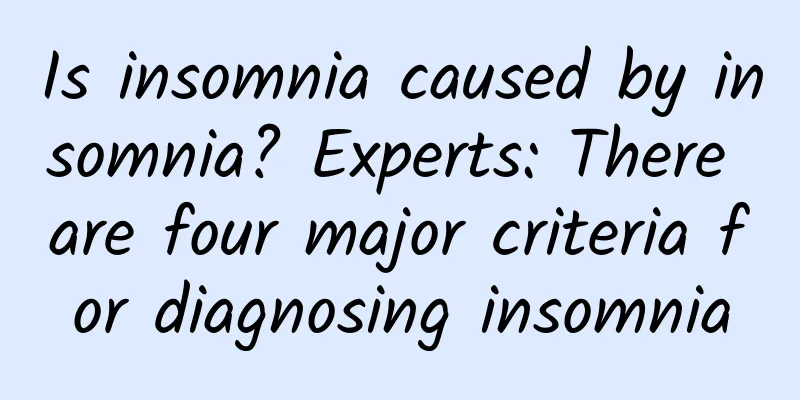Can periodic paralysis be cured?

|
Paralysis is very common in daily life, especially for older people, which is a great torture to themselves and has a great impact on their lives. They are eager to solve their pain, but there is no good treatment. So how to treat periodic paralysis? Can it be cured? 【diagnosis】 1. Medical history and symptoms: It is more common in young and middle-aged men, and may have a family history. It is often triggered by cold, a full meal, and fatigue. It often develops acutely in the middle of the night, early in the morning, or after a nap, and may recur with flaccid paralysis of the limbs as the main manifestation. 2. Physical examination findings: 1. Flaccid paralysis of the limbs of varying degrees, usually starting from the lower limbs, with more severe proximal parts. In severe cases, the respiratory muscles are affected, and there may be muscle pain but no sensory impairment. Most patients recover within a few hours to one or two days, and some may recover within a week. 2. When the myocardium is affected, bradycardia, ventricular premature beats, increased blood pressure, etc. may occur. 3. Hypokalemia caused by hysteria, Guillain-Barré syndrome, hyperthyroidism, hyperaldosteronism, cottony alcohol poisoning, renal tubular acidosis, etc. should be excluded. 3. Auxiliary examination: During the attack, blood potassium decreases and the electrocardiogram shows hypokalemic changes. The response of paralyzed muscles to direct current stimulation is weakened and absent. 1. Attack period: You can take 4-10g of potassium chloride orally at a time (0.2g/kg for children). After the condition improves, continue to take 1-2g of potassium chloride, 3-4 times/d, and stop taking it after full recovery. For patients with more serious conditions, add 30 ml of 10% potassium chloride to 1000 ml of normal saline and slowly drip it. The total amount of potassium chloride in 24 hours should not exceed 8 g. For those with breathing difficulties, give oxygen, suction sputum, and perform artificial respiration if necessary. Patients with arrhythmia were given 30 ml of 10% potassium chloride and 10 u of insulin added to 1000 ml of 5% glucose solution and slowly dripped intravenously. Digitalis drugs are prohibited because of the high risk of poisoning. 2. Intermission period: Avoid various inducements such as overeating, eating large amounts of high-sugar foods, excessive fatigue, etc. If necessary, take 10% potassium chloride 10 ml orally 3 times a day. 3. Some patients still have arrhythmia during the intervals and may often die suddenly due to ventricular tachycardia. Be vigilant and take active measures to prevent and control it. |
<<: There is a lump on the areola, the cause should be known
>>: Will women with kidney deficiency become infertile? Parenting experts tell you the answer
Recommend
How to treat uterine prolapse?
Uterine prolapse is one of the common gynecologic...
Can I get an IUD if I have a cough?
In life, many couples will take preventive measur...
What are the dangers of low estrogen and premature ovarian failure?
If the estrogen level is low, the ovaries will ag...
What are the chances of getting pregnant with polycystic ovary?
The ovary is a very important organ for women. It...
What are the morphological characteristics and growth habits of millet star? How to propagate millet star
Millet star is a succulent plant of the Crassulac...
Is it okay to have sex when my period is almost over?
Many people know that women cannot have sex durin...
What is the reason for bleeding again 15 days after medical abortion?
Compared with surgical abortion, medical abortion...
The more you stay up late, the more awake you are? ——The harm of staying up late (Part 1)
This is the 3721st article of Da Yi Xiao Hu "...
Can I eat pears after having an abortion?
Female friends must pay attention to proper rest ...
What are the items in the physical examination for girls
Our daily lives are becoming more and more simple...
What is the normal thickness of the endometrium during ovulation?
A woman's endometrium will undergo some chang...
How to stimulate lactation on your own? New mothers must know
Due to various complex reasons, some mothers will...
If you don't wash your hair for a day, it will become oily! Is there any hope for people with oily hair? You may be washing your hair the wrong way!
Sitting at the workstation, my mind is empty Othe...
What should I pay attention to to avoid vaginal bleeding after cesarean section?
Nowadays, most pregnant women choose cesarean sec...
What is the use of grinding oyster shells into powder? Can oysters be frozen?
Oysters generally refer to oysters, also known as...









